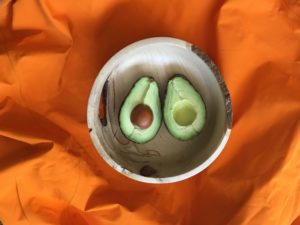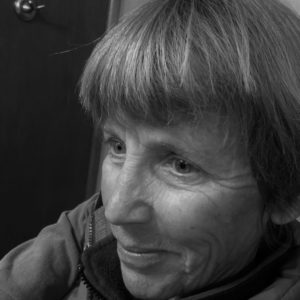 About 2,500 years ago a man was seen walking the byways of India, a bowl in his hands. He was bald-headed and simply clad. His clothing covered him but did not speak of preference or fashion. He was variously barefoot or shod, depending on who he had met in his peregrinations and whether or not they themselves needed shoes. If the need was there, they received his sandals. The only sense of permanence about him resided in his bowl.
About 2,500 years ago a man was seen walking the byways of India, a bowl in his hands. He was bald-headed and simply clad. His clothing covered him but did not speak of preference or fashion. He was variously barefoot or shod, depending on who he had met in his peregrinations and whether or not they themselves needed shoes. If the need was there, they received his sandals. The only sense of permanence about him resided in his bowl.
It was an old wooden bowl, thin and shiny with use. He would give it up someday when the winds were right and his faith had ripened, a day when a child taught him about eternity. But that day had not yet come. He held his empty bowl in front of him as an offering to those who passed by. He held his bowl as a teaching about generosity. Someone might place an avocado in his bowl. Someone else might fill his bowl with sweet gruel. Another might pull onions and lemongrass from their garden plot and place it in the mendicant’s bowl. A scoop of rice. A peach. A handful of nuts. A lily.
If the bowl remained empty, he remained empty. If, at the end of a morning, his bowl was filled with garlic and salt, he ate garlic and salt. Figs and avocados were no more preferred than the scraped remains at the bottom of the rice pot. Some flowers were edible, others he left on the ground for the sacred cows, or cast on the river where he washed his body with sand. Every day was the same in its opening and closing, and every hour was different, every offering a new place to begin. He had nothing. He had only his bowl. He was content and he learned that the path to contentment was generosity. Give it all away, he told himself until it was no longer a voice in his mind, but the nature of mind itself.
Twenty five hundred years later, a friend and I are corresponding about contentment. I say that contentment has nothing to do with arriving somewhere or having something; contentment often abounds among those who have very little. I think of my realtor friend Vernon, getting into what he calls his “fancy Porsche” in my driveway one day last summer. His Porsche is in fact an ancient VW bug. He had just delivered two bags of cookies for a cross-country trip I was about to make—an offering to my empty bowl. Vernon is tall and bald and did not grow up around Porsches. He came to the real estate business because he loves old houses and he likes people. He’s not a wheeler or dealer, and the competition of his profession often gets him down. But that day he looked like a happy man, or at least a man contented. A man who doesn’t take happiness or contentment or even an old VW bug as a given. He’s discovered the art of sitting still, he told me, sitting still outside his house, letting the soft September wind enliven his skin and doing nothing. Doing nothing in the way of not-doing that isn’t sloth or apathy or a frozen depression. He calls it contentment.
Another friend, Jill, and I were hiking in a narrow canyon a few months ago. Jill is the best cook and hiking guide you’ll ever meet. If you had to be stranded on a desert island for a year or two, Jill is who you’d want with you. She told me she’d always thought she had to do and do and do in order to move along in the world and be effective. Now, she said, she’s discovered the power of not-doing; of pausing and waiting; of being still and listening. Listening for the cue to right action. And action, often, without motion. A subtle kind of activism.
We could be better listeners these days. Listening is a generous act. It’s 6 o’clock in the morning and winter dark outside. The people I live with—three of us—are drinking tea or coffee and leaning against the kitchen counters. It’s an impromptu rendezvous inspired by nothing but good timing and our need for caffeine. Everyone’s hair is puffy and unkempt; we are in various forms of sleepwear and slippers. And we are listening. To each other. Agreement happens but is not necessary. Only the attention we give to one another is necessary. One of us is newly published, another wants a dachshund, yet another is musing on the state of the ice in Pyeongchang. Someone mentions graduate school, another wants to create a meaningful refuge for teenage boys, the third speaks of Pearl Harbor and her father’s pilgrimage there before he died. And the swirl of words and the cups of tea and coffee carry us into a more connected day in a world where connection often feels tenuous, a remote possibility, a strand of hair employed to tether a wrecking ball.
This thing we call happiness isn’t the same as contentment, just as belief is not faith. Faith often can and does exist without belief; belief and happiness are often striving states. Happiness can have a frantic energy about it. It thrives on action and reaction. It’s personal and difficult to share. Jill’s happiness and mine and Vernon’s are different and not always easy to recognize. I don’t actually know what happiness is. It’s conditional, contextual and hard to predict. It may be flashy. It may be calm. It’s often about having something. Sometimes it’s the feeling that accompanies the imagining that something we desire will come to us. Contentment is the feeling of acceptance of the arrival of whatever comes to us, desired or not. A fresh avocado or a burned rice cake. A compliment or a scolding. A birth or a death. For the contented, there is no action needed to change the nature of these acquisitions, to make them more palatable. To participate in contentment, the only action asked of us is to step out into the world with our empty bowl every day, as an offering and a gift of attention.

